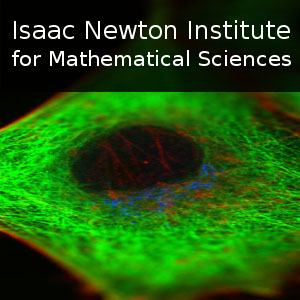Breaking the Curse of Dimensionality with Convex Neural Networks
48 mins 4 secs,
698.62 MB,
MPEG-4 Video
640x360,
29.97 fps,
44100 Hz,
1.93 Mbits/sec
Share this media item:
Embed this media item:
Embed this media item:
About this item

| Description: |
Bach, F
Tuesday 31st October 2017 - 14:50 to 15:40 |
|---|
| Created: | 2017-11-03 13:39 |
|---|---|
| Collection: | Variational methods and effective algorithms for imaging and vision |
| Publisher: | Isaac Newton Institute |
| Copyright: | Bach, F |
| Language: | eng (English) |
| Distribution: |
World
|
| Explicit content: | No |
| Aspect Ratio: | 16:9 |
| Screencast: | No |
| Bumper: | UCS Default |
| Trailer: | UCS Default |
| Abstract: | We consider neural networks with a single hidden layer and non-decreasing positively homogeneous activation functions like the rectified linear units. By letting the number of hidden units grow unbounded and using classical non-Euclidean regularization tools on the output weights, they lead to a convex optimization problem and we provide a detailed theoretical analysis of their generalization performance, with a study of both the approximation and the estimation errors. We show in particular that they are adaptive to unknown underlying linear structures, such as the dependence on the projection of the input variables onto a low-dimensional subspace. Moreover, when using sparsity-inducing norms on the input weights, we show that high-dimensional non-linear variable selection may be achieved, without any strong assumption regarding the data and with a total number of variables potentially exponential in the number of observations. However, solving this convex optimization pro blem in infinite dimensions is only possible if the non-convex subproblem of addition of a new unit can be solved efficiently. We provide a simple geometric interpretation for our choice of activation functions and describe simple conditions for convex relaxations of the finite-dimensional non-convex subproblem to achieve the same generalization error bounds, even when constant-factor approximations cannot be found. We were not able to find strong enough convex relaxations to obtain provably polynomial-time algorithms and leave open the existence or non-existence of such tractable algorithms with non-exponential sample complexities.
Related links: http://jmlr.org/papers/volume18/14-546/14-546.pdf - JMLR paper |
|---|---|
Available Formats
| Format | Quality | Bitrate | Size | |||
|---|---|---|---|---|---|---|
| MPEG-4 Video * | 640x360 | 1.93 Mbits/sec | 698.62 MB | View | Download | |
| WebM | 640x360 | 516.36 kbits/sec | 181.85 MB | View | Download | |
| iPod Video | 480x270 | 522.21 kbits/sec | 183.84 MB | View | Download | |
| MP3 | 44100 Hz | 249.76 kbits/sec | 88.02 MB | Listen | Download | |
| Auto | (Allows browser to choose a format it supports) | |||||

